Our brilliant keynotes Tim Ingold and Catherine Keller may now be viewed online here!
Thank You! A Message From ISRLC Secretary Andrew Hass
Our 18th biennial ISRLC conference, this year in Glasgow, Scotland, is now behind us. For yet another year, participants were privileged to a variegated and enriching feast of stimulating discussion and debate, of intense intellectual engagement, and of local cultural exposure, this time around the theme of Lines in the Sand: Borders, Conflicts and Transitions. Across 17 different panels and 42 sessions, over 150 registrants presented papers, with an ever-expanding global reach: countries represented included USA, Canada, UK, Norway, Sweden, Denmark, Netherlands, Belgium, France, Spain, Germany, Austria, Poland, Estonia, Lithuania, Hungary, Israel, India, South Africa, Taiwan, China (mainland and Hong Kong), Japan, and (perhaps for the first time, and winner of the furthest afield) Fiji. As always, we owe a great debt to the conference organisers headed by Heather Walton and Anna Fisk of Literature, Theology and the Arts at the University of Glasgow, who worked tirelessly with their team to host such a strong and inspiring event. Many thanks to all of them for advancing in their unique manner, within its distinctly Scottish setting, our tradition of blending high quality with an interdisciplinary, yet intimate, ethos.
Two keynote speakers contributed to this ethos in differing but exemplary ways: Prof. Tim Ingold (Aberdeen) with a lecture entitled “Lines of Correspondence”, and Prof. Catherine Keller (Drew), who presented this year’s Literature and Theology Annual Lecture entitled “Lines in the Innumerable: Enmity, Exceptionalism and Entanglement”. These lectures were filmed, and will soon be available online for viewing online (check this blog for updates).
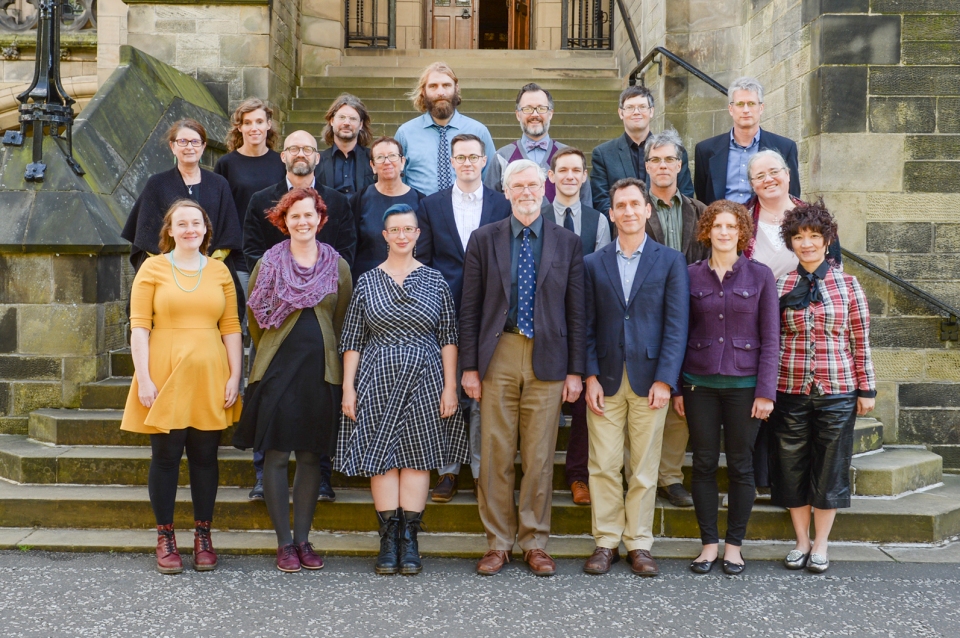
Special mention was also given to Prof. David Jasper (Glasgow), the only pioneering figure still regularly participating in the conferences. Prof. Jasper helped to launch the first conference in Durham back in 1982, and then became the first General Editor of Literature and Theology, the journal that emerged out of these early events. Acknowledgement was given to Prof. Jasper’s enduring legacy as a driving force behind what has now become an internationally recognised centre of enquiry and exploration, marked precisely by the courage to rethink disciplinary borders, and the conflicts and transitions that arise in crossing them.
Bill Wylie Exhibition
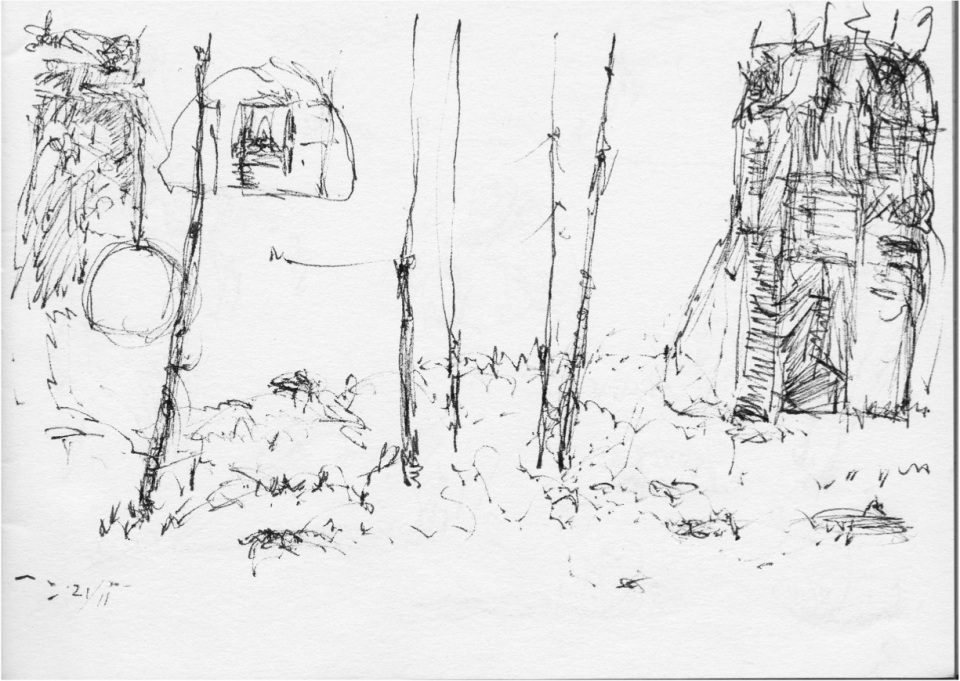
Extract from Bill Wylie’s notebook ‘Dwellings’
On Friday night, there will be a drinks reception and a chance to view the Bill Wylie exhibition ‘The Presence of the Artist’.
Bill Wylie was researching for a PhD at the University of Glasgow until his sad passing in 2014. He was a trained artist who had worked as a psychotherapist in High Security Psychiatric units, and his research was exploring the religious and spiritual dimensions of his own art in this context.
The images here, which are part of the exhibition, are drawn from Bill’s notebooks, giving a glimpse of his process and movement of thought.
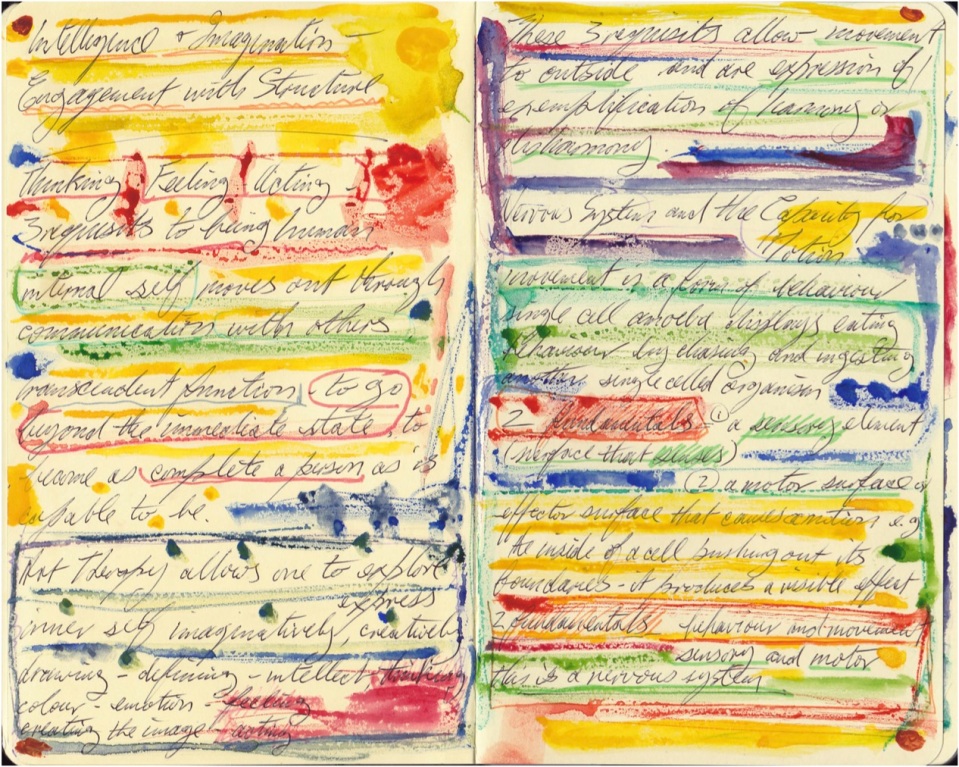
Extract from Bill Wylie’s academic notebook ‘The Nomad’s Contempt for the Pyramid’
Scottish Literature Special Session
The Scottish Religious Bestseller (Scottish Religious Cultures Special Session)
Friday 9th September, 1.30-3.00 p.m.
Yudowitz Seminar Rm, Wolfson Medical Building
Focusing on the legacy of religion in Scotland, the Scottish Religious Cultures network is a multi-institutional collaboration financed by the Royal Society of Edinburgh’s research networking scheme. Due to its fundamental role in shaping Scottish culture, religion continues to affect the nation on a day-to-day basis. We seek to deal directly with the role of religion as a formative and yet divisive force in Scottish society and highlight its positive and negative functions in the development of the nation’s culture. The network is committed to disseminating the very best research on this subject through public lectures, conference and publications. The network also publishes a book series with Edinburgh University Press entitled ‘Scottish Religious Cultures: Historical Perspectives’.
1. Scott Spurlock, ‘Robert Barclay’s Apology’
It may be difficult to apply the term bestseller to a printed text of the early modern period, however, Robert Barclay’s An Apology for the True Christian Divinity (1678) deserves special consideration. While not being consumed in the quantities of Foxe’s Book of Martyrs or Milton’s Pilgrim Progress, Barclay’s work of systematic theology went through nearly 50 editions printed in Scotland, England, Ireland and North America and appeared in seven different languages, including Arabic. Barclay’s work lacked the literary complexity of Milton and the dramatic storytelling of Foxe, instead he offered a theologically astute and spiritually reflective plea for ‘true Christian divinity’. This paper will explore why this remarkable text generated so much interest and led to personal correspondence between the author and Princess Elizabeth of the Palatinate.
2. Deryl Davis, ‘”The Great Calvinistic Poem”: Reception History and Robert Pollok’s “The Course of Time”‘
Almost unknown today, Robert Pollok’s nearly 10,000-line religious epic, ‘The Course of Time’, was one of the best-selling poems of the early nineteenth century. Published to immediate acclaim in 1827, the poem remained a bestseller for almost fifty years, capturing audiences with its unique combination of High Romantic sensibility and Calvinist piety. Drawing on Milton’s ‘Paradise Lost’, Pollok – a Scotsman and a recent divinity graduate of the University of Glasgow – sought to justify divine providence and counter contemporary challenges to biblical authority, traditional Christian dogma, and the reality of heaven, hell, and final judgment. My paper examines the literary and religious sources of ‘The Course of Time’ and explores the reasons behind the poem’s remarkable success in the nineteenth century and its near-disappearance in the twentieth and twenty-first centuries.
3. Gerard Carruthers, ‘Muriel Spark’s The Prime of Miss Jean Brodie’
The book that launched Muriel Spark to international fame continued what her previous five novels had done in exploring religious truth and its relevance to the modern world. Spark’s achievement in The Prime of Miss Jean is all the more remarkable as it appeared against a preference in the early 60s for ‘kitchen-sink’ quotidian realism, in fiction, theatre and film. Spark’s novel would go on to work successfully within all three of these modes, peddling an experimental layer that brought together post-modern technique and theological interest. This paper, partly drawing upon new archival work, explores the elements of Spark’s quantum leap to become one of the world’s best-known writers. It particularly examines Spark’s use of historical mode, realistic disjunction and a demonic voice in The Prime of Miss Jean Brodie. Finally, it speculates on how such a genuinely unsettling novel has become such a mainstream text, both in academe and across such a wide, international popular readership.
Iona Community Ritual
On Sunday 11th September, 10.45 -11.30 a.m, in the University of Glasgow Chapel, the Wild Goose Resource Group of Scotland’s Iona Community and friends from their Glasgow-based Holy City collaborative will present a liturgy focused on the history of wall-building and the struggles for land and identity in Israel and Palestine over three millennia. The liturgy involves the building of a symbolic wall in the Glasgow University chapel, representing the many divisions between peoples, religions, and cultures in Israel-Palestine, but also pointing to the hope for justice, peace, and inclusion in those troubled lands, as well as our own. To learn more about the Resource Group and its activities, visit www.wildgoose.scot.
Poetry Performances
ISRLC conferences are known for being sociable, creative, and inspiring, and the banquet and ceilidh on Saturday evening promise to be just that, as we have three fantastic poets performing.
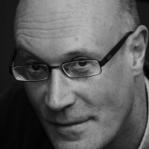
DAVID KINLOCH is the author of five collections of poetry including Un Tour d’Ecosse (2001), In My Father’s House (2005) and Finger of a Frenchman (2011), all published by Carcanet. In the 1980s he co-founded and co-edited the poetry magazine, Verse. More recently he helped establish the Scottish Writers’ Centre. He is Professor of Poetry and Creative Writing at the University of Strathclyde, Glasgow.
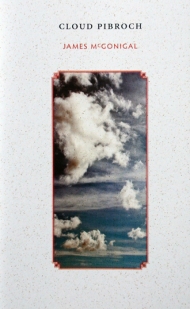
JAMES MCGONIGAL is a poet, editor and translator, formerly a school teacher and educationalist. His co-edited volume The Midnight Letterbox: Selected Correspondence of Edwin Morgan 1950–2010 has just been published by Carcanet Press. His last collection Cloud Pibroch (Mariscat Press, 2010) won the UK Michael Marks Poetry Pamphlet Award. The Camphill Wren (Red Squirrel Press, 2016) is his first full collection.

SAMUEL TONGUE has published poems in numerous anthologies and magazines, including And Other Poems, The Compass, Cordite (Aus.), Gutter, Ink, Sweat & Tears, Magma, and Northwords Now. He held the Callan Gordon Award as part of the 2013 Scottish Book Trust’s New Writers Awards and is featured in Be The First to Like This: New Scottish Poetry (Vagabond Voices, 2014) and Best British and Irish Poets 2016 (Eyewear, 2016). His first pamphlet collection is forthcoming from Eyewear. Samuel is poetry editor at The Glasgow Review of Books.
Registration for the conference, including day registration, is available here until the 22nd August.
List of papers now available!
This is going to be a wonderfully rich and busy conference – see the full of list of papers to be given by 137 scholars in literature, theology and the arts.
Conference schedule now available
You can now access the draft schedule for the conference here. See also the draft timetable for the parallel paper sessions. Please direct any enquires concerning the running order of the individual panels to the relevant panel convenor (email addresses on this page), bearing in mind that a full schedule of papers will be published on this website in July.
Registration is open!
Register for the conference here. The delegate fee for the 3 days of the conference is £160, with day packages also available.
If you are a University of Glasgow student, please get in touch with anna.fisk@glasgow.ac.uk to be provided with a discount code to register for the full conference at the reduced rate of £60.
If you have applied for a bursary and been informed that your application was successful, please do not register for the conference on this system, instead email Anna with the details requested in the confirmation email.
Biblical Studies Panel
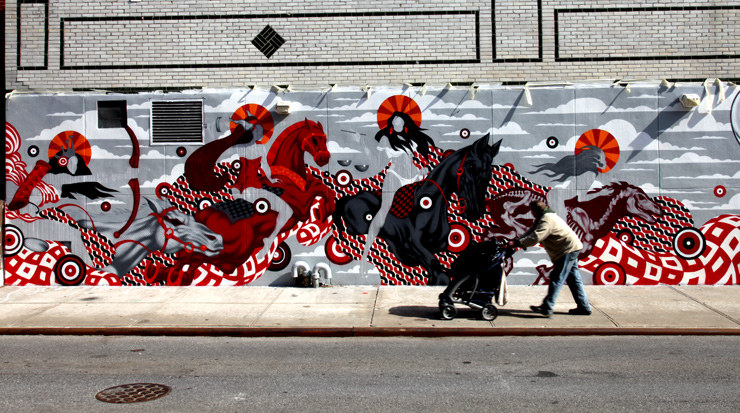
The four horsemen from Revelation, Brooklyn NY, by street-artist Tristan Eaton. Photo (c) Jamie Rojo.
Dr Mette Bundvad is a postdoctoral research fellow in the department of Biblical exegesis at the University of Copenhagen, and is the convener of the Biblical Studies Panel.
What interests you about the theme ‘lines in sand’, for the conference generally, and for the Biblical Studies panel?
On a general level, the “Lines in Sand” conference theme invites much needed discussion of borders, politics, and identity in the context of religion and culture.
For the biblical panel specifically, I hope that the conference theme will prompt us to think about the borders of the biblical texts, as well as the borders of the communities that read and produce these texts. “Lines in Sand” gives us an opportunity to discuss anew questions related to migration, exile, and the various stabilities and instabilities of text.
What are you hoping for from the papers and discussions in the Biblical Studies panel?
The conference theme is ideal for a panel on Biblical Studies. I hope that it will spur a wide-ranging discussion of the biblical texts and their reception from the perspective of their borders and margins.
Participants might focus on questions related to politics, ideology, and identity, exploring for example the practices of inclusion and exclusion employed by interpretive communities. Papers could also look at the changing identities of biblical texts, communities, and traditions, as they migrate geographically, through time, or between media. Or they could do something entirely different: I am also hoping to being surprised by some of the approaches taken by participants in the Biblical Studies panel.
If you have been before – what have been some highlights of previous ISRLC conferences? What are you most looking forward to in the 2016 conference?
I have been to ISRLC conferences three times before: Aarhus in 2008, Copenhagen in 2012, and Leuven in 2014. The ISRLC conferences are always hugely enjoyable. They are a unique forum for meeting colleagues from different disciplines, who are all doing exciting work within the broad field of religion and culture. That is also one of the things I look forward to the most this year: the fruitful, interdisciplinary conversations and the boundary-crossing panels.
As a side-note, ISRLC was the first international conference I presented at, and I still feel lucky that I had my first conference experience in such a supportive environment. I hope many graduate students will have the same, positive experience in Glasgow this year!
If you know Glasgow – any tips for places to visit? If not – is there anything you are hoping to visit in Glasgow?
I’ve never been to Glasgow, so I am hoping to find time to wander the streets and explore the city a bit. In addition to this, I have it on good authority that there is excellent food to be had in Glasgow!
For more information, see our Call for Papers page.
